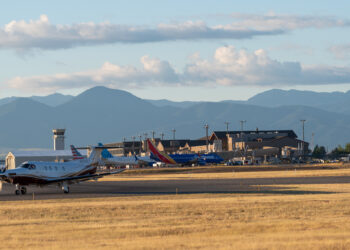By Scott Mechura EBS Food Columnist
If chefs ruled the world, we would be a diverse, organized people who may disagree on occasion, but at the end of the day would include everyone somehow. We would eat drink and be merry when the situation dictated—all the while, in a constant state of readiness and probably with the best secret burger and cocktail in hand. Below are the qualities of great chefs that would also make them great leaders.
Diversity – Over a beer one night about two years ago, I wondered what the summation of international workers was that I’ve employed or worked beside. To date, I’ve worked with men and women from no less than 51 countries spanning six continents. I can say without hesitation that it has made my education, experiences and friendships stronger than I ever imagined.
Strength comes from flexibility, not rigidity. A mighty oak tree will hold strong in the fiercest of winds, until it can stand no more and its branches snap. Meanwhile the bending and flowing willow tree dances in the wind with ease. As a chef, two of the most successful kitchens I’ve been in have also been the most culturally diverse.
Organization – While the U.S. government is relatively organized, many governments are not. Two of my best friends have lived all over the world, and the stories they have of dysfunction and ineptitude in their respective residences would make one think that Laurel and Hardy were at the helm. If a chef were commander in chief, organization would be the cornerstone of leadership.
Efficiency – The goal of every culinarian I know is to find a way to become more efficient and eliminate unnecessary steps, which take time and time costs money. The opposite of a chef’s world would be what most governments are known for: bureaucracy.
One simple definition of bureaucracy is excessive multiplication and red tape. As a chef, I can’t think of a greater hindrance than being held up by outdated rules and too many people stirring the sauce; pun intended. If a chef ruled, every department and government organization would be streamlined and have the least amount of processes to achieve the end result.
Budget – With most restaurants operating at a 5 percent profit margin, there is very little room for error. A restaurant cannot change the interest rates, or receive a bailout from the government. If times are tough and finances are strained, a chef must sharpen his pencil and find his own way out. If a chef were in charge, anything short of a balanced budget would be unacceptable. And they would always have a secondary and a tertiary plan.
Inclusion – While it may seem as though we are closing our doors here in America, there are many countries that have far harsher guidelines for entry than us. It wasn’t that long ago that Austria closed its doors to virtually all asylum seekers.
As chefs, we sincerely love to feed everyone. From our ovens in the kitchen, we cannot see who we are cooking for. We do not care what their religious or political background is. We merely want to provide a memorable experience for each guest, or countryman or wayward soul.
For many chefs here on American soil, we have stories of our mothers or grandmothers making large meals that fed the entire extended family.
I have my own memories of meals growing up with my best friend who was Italian. Every Sunday after church we would walk home to his house where his mother was cooking pasta meals that seemed to go on forever. It was just how they ate and socialized.
It was about including the entire extended family and sometimes even the neighbors. The most fascinating aspect of those Sunday meals was watching family members argue seemingly to the death over something, only to kiss one another on the cheek and say “I love you” as they walked them to the door.
Scott Mechura has spent a life in the hospitality industry. He is a former certified beer judge and currently the Executive Chef at Buck’s T-4 Lodge in Big Sky












